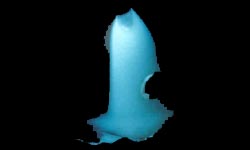

| CRC
WELDED STRUCTURES - MATERIALS WELDING AND JOINING DISTANCE EDUCATION PROGRAM : SYLLABUS |
| The syllabus of the Graduate Diploma and Master of Engineering Practice follows the IIW guidelines but additional material appropriate to Australian national requirements is included. In addition some of the most recent developments from the CRC-WS research program are included in the material. The most recent information and regular updates will be conveyed to the students via the web based support package (WebCT).  |
|
Introduction to welding and joining technology. Classification of welding processes, applications; typical problems, health and safety issues. Introduction to fusion and pressure welding processes; adhesive bonding, soldering and brazing; joining process physics. Review of basic electrics and electronics; arc characteristics and control. Introduction to behaviour of metals during welding. Introduction to mechanical testing and NDT. Basic joint design and testing. Quality assurance of joining techniques. Introduction to reclamation repair by welding. Introduction to advanced welding technology. Introduction to Fracture Mechanics. ENGG902 - Fusion Welding Processes (Part 1)
Introduction to gas shielded welding; process principles of GTAW welding; shielding gases; effect of gases on arc characteristics; filler metals; standards; typical problems; health and safety issues. Tungsten inert gas (TIG) welding; power sources; process factors; joint design; specifications; applications and typical problems; health and safety factors. Plasma, electron beam, laser welding and cutting. Advanced TIG welding. ENGG903 - Other Joining Processes
ENGG904 - Fusion Welding Processes (Part 2)
Gas metal arc welding (GMAW); metal inert gas (MIG) welding; metal active gas (MAG) welding; power sources; process factors; special techniques; joint design; specifications; applications; typical problems; health and safety issued. Metal transfer. Manual metal arc (MMA) welding; (SMAW, MMAW); power sources; process factors; electrode coatings; joint design; specifications; applications and typical problems; health and safety factors. Submerged arc welding (SAW); power sources; process factors; joint design; specifications; applications; typical problems; health and safety issues. Advanced GMAW, FCAW. Electroslag welding; process factors; applications and limitations. ENGG905 - Introduction to Behaviour of Metals During Welding
(Part 1)
Structures and properties of metals; alloys and phase diagrams; iron-carbon alloys; heat treatment of steels; microstructures of welded joints; embrittlement and cracking in steels. Structural steels; fine grained steels; thermomechanically processed steels. ENGG906 -Behaviour of Metals During Welding (Part 2)
High temperature creep resistant steels; high alloy stainless steels; cryogenic steels; low temperature steels; stainless steels; H/R steels; creep resistant steels; nickel-based alloys; other metals and alloys; welding of ferrous and non-ferrous castings; introduction to corrosion and wear; welding of castings. ENGG907 - Welding of Non-Ferrous Metals and Joining of Non-Metals
Copper and copper-based alloys; aluminium and aluminium-based alloys; joining dissimilar alloys; structures and properties of non-metallic materials and composites; joining of polymers; joinng ofpolymers to metals; joining of ceramics; ceramic-metal joints; methods used for joining of composites and composites to other materials. ENGG908 - Construction and Design (Part 1)
Fundamentals of the strength of materials; basics of weld design; design principles for welded structures; joint design; fracture mechanics. ENGG909 - Construction and Design (Part 2)
Behaviour of welded structures under load; design of welded structures for static loading; effects of dynamic loading; thermodynamically loaded welded structures; reinforced steel welded joints; design of welded aluminium alloy structures. ENGG910 - Fabrication/Applications Engineering (Part 1)
Cutting and other edge preparation processes. Quality assurance in welded structures; quality control during manufacture; total quality management. Plant facilities; welding jigs and fixtures. Fume and radiation hazards from welding; health and safety issues. ENGG911 - Fabrication/Applications Engineering (Part 2)
Welding stresses and distortion; control of welding restraint; stress relieving of weldments. Fepair welding; fitness for purpose considerations; economic aspects of weld fabrication; economic considerations of high productivity welding; automatic and robotic welding. ENGG914 - Fabrication/Applications Engineering (Part 3)
Non-destructive testing; measurement control and recording. ENGG919 - Dissertation (For Masters Students Only) A thesis is required based on project work and/or an interpretive literature review on a topic in materials welding and joining. The thesis can be oriented towards mechanical, materials, civil, or mining engineering. SUMMER SCHOOL 1: ENGG917 The theme of this summer school will be to reinforce the process and equipment subjects and consists of:
SUMMER SCHOOL 2: ENGG918 This summer school will reinforce the materials weldability subjects and give hands-on experience of metallography and it will consist of:
SUMMER SCHOOL 3: ENGG915 The summer school will address welded construction and design. It will include:
SUMMER SCHOOL 4: ENGG916 This summer school will consolidate the previous sections of the course and concentrate on fabrication application. It will include:
|